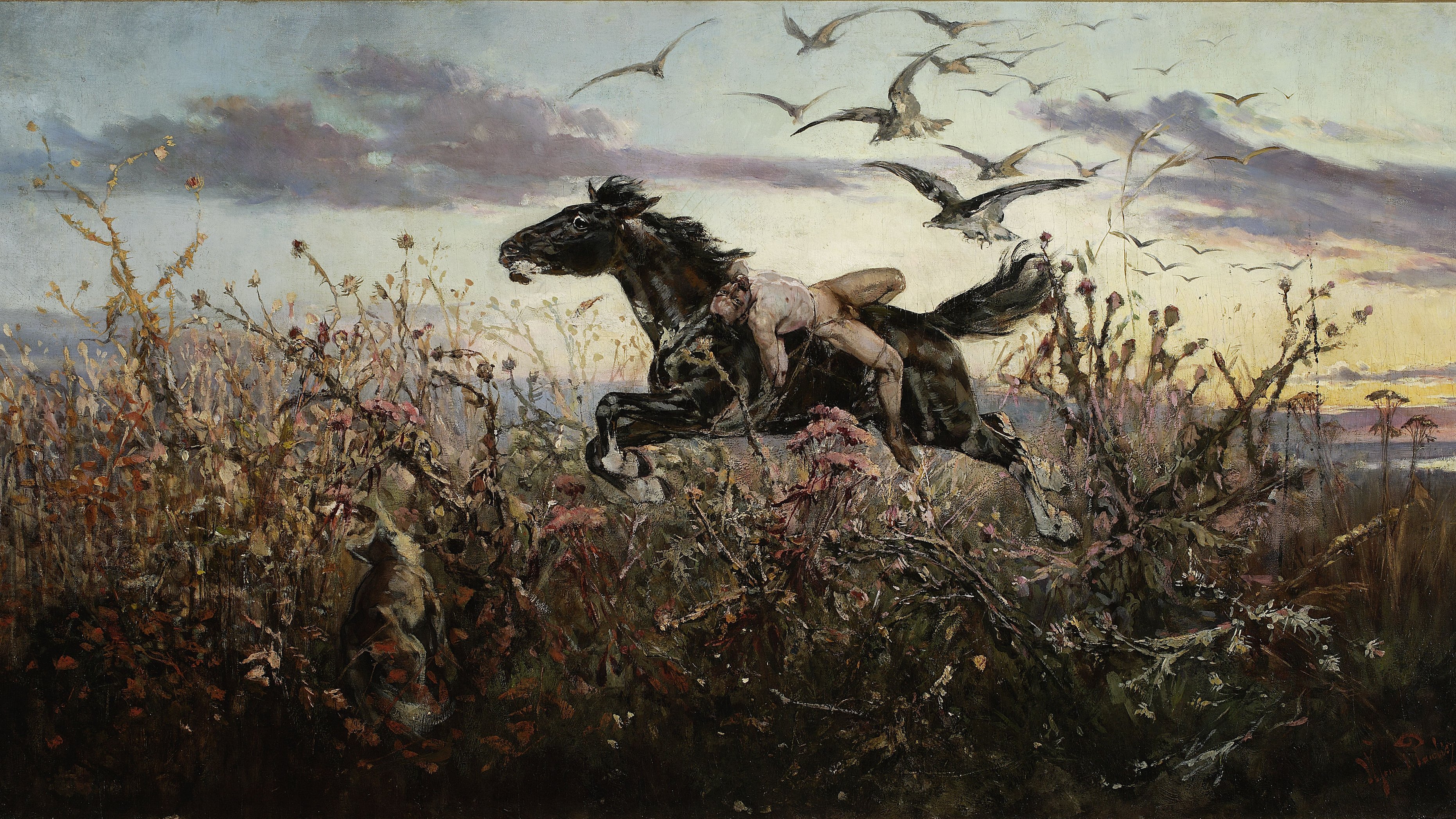- History

The figure of Ivan Mazeppa has inspired a wide variety of artists, including Franz Liszt, Lord Byron, Rainer Maria Rilke, Bertolt Brecht – and of course Alexander Pushkin, whose poem Poltava forms the basis of Tchaikovsky’s opera. The appeal of his biography is easy to understand. It is the story of the rise and fall of a military leader, of war, intrigue and the harsh world of the Cossacks.
Born around 1640 in the Polish-controlled part of Ukraine, the historical Ivan Mazeppa started his rise as a page to the king in Warsaw. Already at this point, the story begins to take on legendary elements: the tale goes that when his affair with an aristocrat was discovered, he was tied naked to the back of a horse by her husband in revenge and driven into the wilderness. The animal supposedly covered hundreds of kilometres until it collapsed, exhausted, and the half-dead Mazeppa was found by Cossacks and nursed back to health.
Step by step, Mazeppa made a career for himself: first, thanks to the education he had acquired in Poland, as secretary to the army commander of the Cossacks – and then as his successor, chosen by the prime minister of Sophia, who was regent for the young Peter I. Mazeppa served the Tsar faithfully for years, fighting battles against the Swedes and keeping rebellious separatists at bay until he changed sides and dared to revolt against Moscow in a pact with the Swedish King Charles XII.
His downfall came with the Battle of Poltava in 1709: the combined forces were defeated and routed by Peter I’s army, and Mazeppa fled with the Swedish king to what is now Moldavia, which at the time belonged to the Ottoman Empire. He died there soon afterwards.
In the centuries-old conflict between Russia, Poland and Ukraine and their ethnic groups, the figure of Mazeppa has served changing purposes – sometimes as a heroic fighter for national self-determination, sometimes as a cautionary tale of a selfish traitor. Pushkin’s critical stance is explicit; his poem was also conceived as an homage to the new Tsar Nicholas I, who had allowed him to return from exile and whose goodwill the poet had to secure.